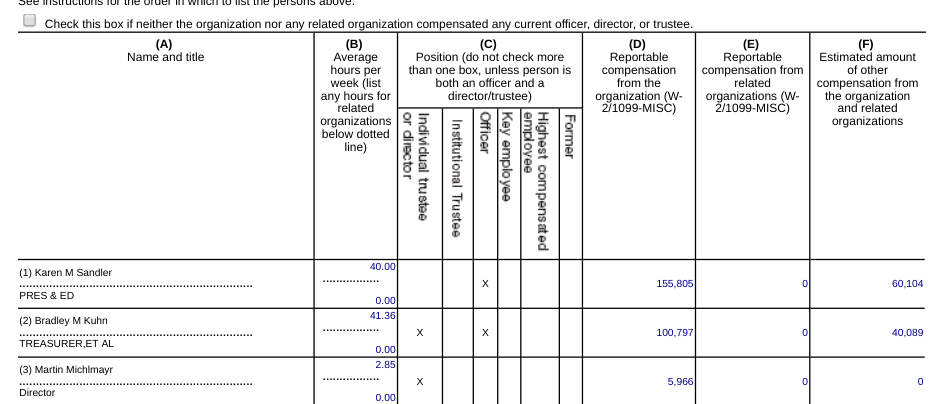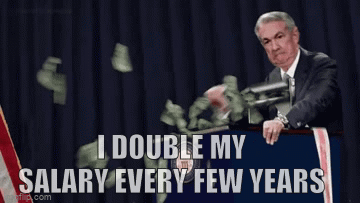


Concerning a Statement by the Conservancy
On Friday, while we were putting on our annual conference at Columbia Law School, a puff of near-apocalyptic rhetoric about us was published by SFLC’s former employees, Karen Sandler and Bradley Kuhn, who now manage the Conservancy, which was originally established and wholly funded by SFLC, and still bears our name. We were busy with our conference when this happened, which seems to have been the point. We are glad to have the chance now, after a little much-needed rest, to help everyone avoid unnecessary hyperventilation.
What Has Happened?
At the end of September, SFLC notified the US Patent and Trademark Office that we have an actual confusion problem caused by the trademark “Software Freedom Conservancy,” which is confusingly similar to our own pre-existing trademark. US trademark law is all about preventing confusion among sources and suppliers of goods and services in the market. Trademark law acts to provide remedies against situations that create likelihood of, as well as actual, confusion. When you are a trademark holder, if a recent mark junior to yours causes likelihood of or actual confusion, you have a right to inform the PTO that the mark has issued in error, because that’s not supposed to happen. This act of notifying the PTO of a subsequently-issued mark that is causing actual confusion is called a petition to cancel the trademark. That’s not some more aggressive choice that the holder has made; it is not an attack, let alone a “bizarre” attack, on anybody. That’s the name of the process by which the trademark holder gets the most basic value of the trademark, which is the right to abate confusion caused by the PTO itself.
The holder of the junior mark causing the confusion has of course a full range of due process rights to defend the mark that it has registered, as it should have. So the result is very like a trial, and is conducted before an administrative tribunal called the Trademark Trial and Appeals Board. Its job is to decide whether the PTO wrongly registered a mark likely to cause confusion, which the PTO isn’t statutorily authorized to do. The process is formal, conducted under rules like the Federal Rules of Civil Procedure, and its records are publicly accessible. This is not a proceeding in which anyone is seeking an injunction or claiming damages. The only question being asked is whether the PTO should have issued the trademark.
The junior mark causing the confusion was applied for in November 2011, almost a year after SFLC ceased representing the Conservancy; the Conservancy had its own lawyer, who signed the trademark application.
By no means does this situation justify the tone of defensive overreaction we heard from the Conservancy management on Friday, which was like reading a declaration of war issued in response to a parking ticket.
Why Didn’t You Settle This Between the Organizations?
We too think this is a very good question. We have tried repeatedly for almost three years to get a meeting with Karen and Bradley in order to discuss this and other claims we have concerning their and the Conservancy’s activities. In all that time, they have never once agreed to meet with us to hear and discuss our concerns. They have presented transparently dilatory responses, such as being “too busy,” or even “always too busy” when we asked them to set their own time. Sometimes we have not been offered so much as the courtesy of a refusal.
We have asked intermediaries—friends, business associates, comrades in the free software movement, other alumni of SFLC—to stress to Bradley and Karen the importance of opening negotiations. One would think this unnecessary with people who talk so frequently about the importance of communication and opening connections with respect to “compliance enforcement.” But here, when the shoe is on the other foot, no efforts on our part have gotten us the slightest progress in bringing about discussions to resolve differences.
We think that waiting more than thirty months after initial contact—and after repeated efforts at both direct and mediated communication seeking to open negotiations—is not too little time to allow before beginning to bring our claims.
Safety For Others
Friday’s response from the Conservancy’s management is grossly disproportionate, and—in view of their long-maintained refusal to communicate with us—irresponsible. The first responsibility of asset managers, who have others’ rights and valuables in their keeping, is prudence. One would hardly associate the word “prudent” with either their statement on Friday or the course of conduct over the last three years that it culminates.
Special concern should be expressed about the aspect of their statement darkly suggesting that we are creating risks for projects associated with the Conservancy. The driver of any risk, it seems to us, is the reckless refusal of the Conservancy’s management to negotiate with us for settlement of our claims, which has left us to pursue last-resort approaches we have done everything we could to avoid.
But we absolutely agree that within the free software community we must protect projects producing software from any avoidable risks in the organizational or legal situation around them. That’s what our law practice at SFLC is always about. Any project working with the Conservancy that feels in any way at risk should contact us. We will immediately work with them to put in place measures fully ensuring that they face no costs and no risks in this situation.
What Should Happen Next?
Everyone observing this situation, we suspect, knows the answer to this question. But we cannot bring to the table counterparties who have so far refused to meet us, and who on Friday used their communications energies greatly and unnecessarily to increase polarization, thus making diplomacy harder. We recognize this pattern in their conduct from other situations. We have spent the last eighteen months preparing to bring our claims in the various relevant fora. We are now, as we have been throughout, fully prepared to meet immediately for a discussion of all outstanding issues without preconditions. Otherwise, it seems evident that more shoes will drop.
Please email any comments on this entry to press@softwarefreedom.org.